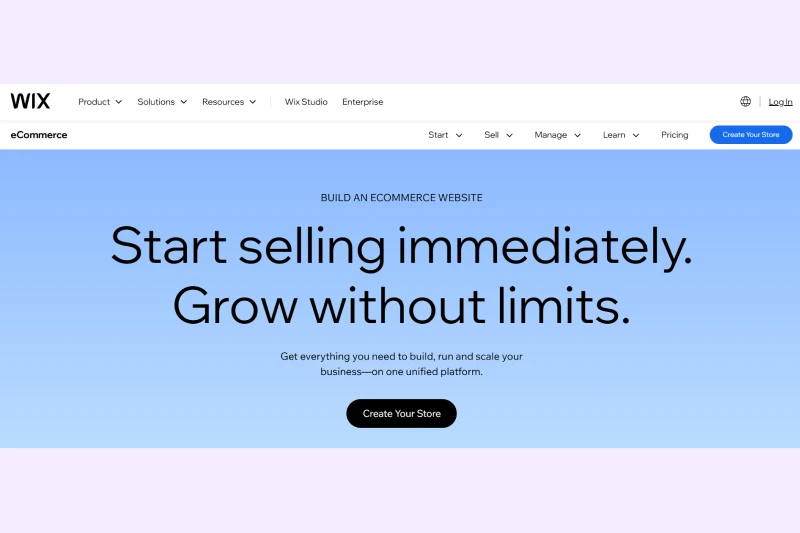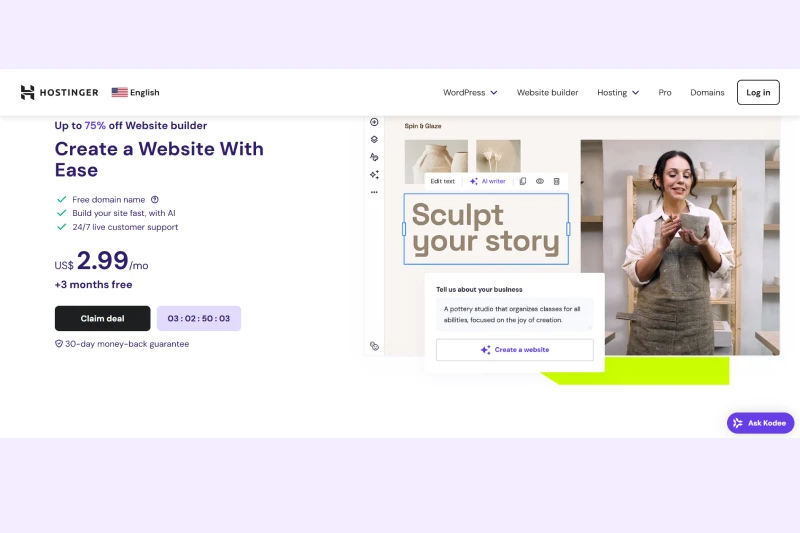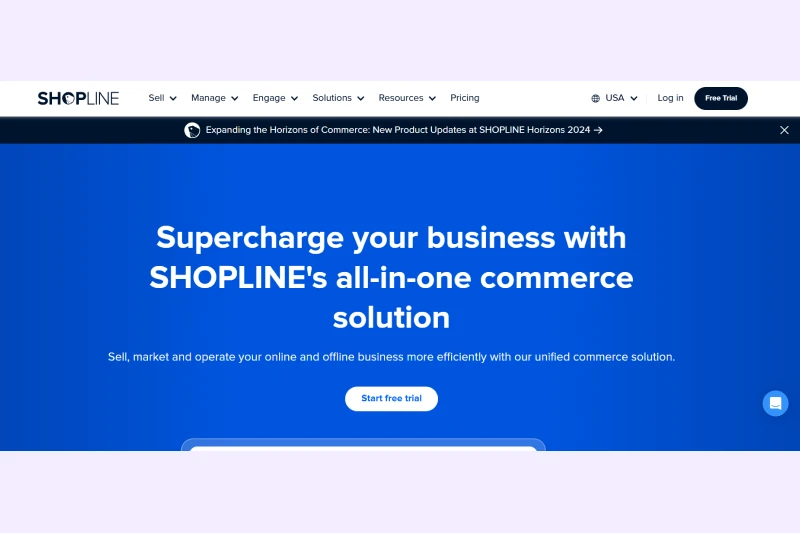The ideal eCommerce solution for starting or expanding an online business is essential. This guide includes everything, from what a commerce platform is to how it works, why it is necessary, and which one suits you best.
It includes insights into all the available platforms, their most basic features, pricing considerations, and best options like Shopify, GoSELL, WooCommerce, and BigCommerce, whether for a small business owner, an entrepreneur, or the enterprise itself. Lectures are complete, and all that remains is to select which will power an individual’s e-business toward online success!
1. What is a commerce platform?

An eCommerce platform has completely defined software for setting up and managing an online store. It provides a digital space for an interior seller of products to serve, engage customers, and transact through the Internet. In a nutshell, you can call it an “online store” on the web.
Playing a crucial role in modern business operations, these eCommerce platforms focus on key functions such as:
- Enabling online sales: This is the core function, allowing businesses to reach customers worldwide without being limited by physical location or operating hours.
- Product management: These platforms offer tools to add, edit, categorize, and attractively display products.
- Order processing: They automate the entire order journey—from when a customer places an order to final delivery—handling order confirmation, payment, shipping, and tracking.
- Marketing & promotions: Many platforms integrate SEO tools, email marketing, promotions, and discount features to help attract and retain customers.
- Secure online payments: They support multiple secure payment methods, making transactions smooth and convenient for buyers.
- Analytics & reporting: Businesses can access valuable data on sales performance, customer behaviour, and other key metrics to optimize their strategies.

Since today is the digital age, eCommerce platforms are becoming very helpful software companies in making their presence known online. Through efficient functioning, these platforms can extend market reach, attract new customers, raise sales and profits, streamline operations and reduce costs, enhance customer experience, build brand loyalty, and provide a competitive edge against the competition.
2. Why do you need a commerce platform for your business
After understanding what is a commerce platform, we can now learn more about its benefits and why you need it for your business. Online business is more than just having a website or a fan page attached to social media. A very independent eCommerce website would manage products and transactions involved in creating a customer-friendly experience.
Unlike DIY solutions rife with missing eCommerce features, an eCommerce platform is bundled with an entire stock function suite that offers inventory management, secure payment gateways, and an easy checkout experience. This is not only time-saving but also delivers a professional and trustworthy shopping experience for your clients.

Along with that, focus on the scalability and security for the long term. Concomitantly, a platform for eCommerce grows; thus, integration with marketing tools, data analytics, and multichannel selling functions should be seamless. Protection of business and customer data through SSL certificates and detection of asset fraud shows the importance of security features and compliance with widely accepted standards.
An eCommerce platform has the distinct advantage of endorsing a serious brand image through customer trust development instead of mere website or social selling. This, in turn, creates a sound base for long-term business growth.
3. Different types of commerce platforms
While setting up any new online store, a marvellous platform is necessary for its functioning, scalability, and profitability. Nowadays, there are three eCommerce platforms: Hosted/SaaS, Self-Hosted, and Open Source. Within each of these categories, several features fit relatively different business requirements.

3.1. Hosted/SaaS commerce platforms
That is the place to kick off when small and medium enterprises or anyone looking to set up shop online almost instantly and with the least hassle conceivable. SaaS is an acronym for Software as a Service. It is like an all-in-one subscription package with a nice combination of hosting, security, and technical support. Examples include Shopify, BigCommerce, and Wix.
| Pros | Cons | Best for |
|---|---|---|
|
|
|
3.2. Self-hosted commerce platforms
Self-hosted eCommerce platforms are one of the best choices for those interested in complete control over their information and expansion based solely on their need. With these, you buy your hosting, install, manage, and operate the system rather than relying on a SaaS or subscription-based service. Popular examples of some self-hosted platforms include WooCommerce, Magento, and OpenCart.
| Pros | Cons | Best for |
|---|---|---|
|
|
|
3.3. Open source commerce platforms
The even better and best option for large enterprises or technology companies intending complete eCommerce customization is open-source platforms. Such platforms are for free use but require full time spent on their development, hosting, maintenance, and optimization. Some of the most commonly adopted open-source platforms include WooCommerce, Magento, and PrestaShop.
| Pros | Cons | Best for |
|---|---|---|
|
|
|
4. What features should you look for on a commerce platform?

Bear in mind that any eCommerce platform worthy of choosing must be extremely user-friendly, easy to navigate, customizable with the utmost flexibility, and responsive across all devices. Payment integration, security, SEO management, and product and data management are other significant features that facilitate and guarantee long-term progress in business processes.
- User-friendly interface: A well-designed platform does well for the administrator and the customer while it is easy to navigate. Such a simple menu dashboard saves time and helps in speeding up operations.
- Customization options: Businesses are unique, and it is essential to have flexible software designs and features that suit individual needs.
- Mobile responsiveness: The platform ensures that it can be displayed well on all screen sizes so that more than half of shoppers can get a smooth online shopping experience when using mobile devices.
- Payment gateway integration: Supports different payment channels, such as credit cards and e-wallets (such as PayPal and Stripe), which are the most prominent ones, making transactions straightforward and improving conversion rates.

- Security features: Sturdy SSL certificates and each transaction are enveloped in the tightest chain of encryptions, so there can be no internal access; we must be trustworthy in our purchase.
- SEO capabilities: Built-in SEO tools improve search rankings, drive organic traffic, and reduce the need for expensive ads.
- Analytics and reporting: Monitor sales, consumer behaviour, and store performance with action ability in intelligent business decision-making.
- Customer support tools: Live chat features or ticketing systems facilitate seamless customer service delivery by providing responsive support to customers and improving the overall experience enjoyed by customers.
- Product management (listings, inventory): Inventory items listed on the marketplace, perhaps, and are provided through stock and inventory management software to ensure the store is ordered and moving forward accordingly.
- Order processing and fulfilment: It brings together the whole cycle, from purchase to delivery, covering up the misgivings of the process.
- Marketing tools (SEO, email): Furnishings for email campaigns, stuff for promotion on the online space, and tools needed to maintain the website were all dedicated to boosting sales and securing valuable clients.
- Reporting and analytics: Detailed sales reports, customer analytics, and product performance insights are essential for the best strategic planning.
5. How does an eCommerce platform work?

In understanding what a commerce platform is, it is crucial to know how it operates. When you fully understand this, you can operate it correctly and avoid mistakes. As a central hub, eCommerce platforms help businesses manage online selling. Customers visiting the online store can browse through products, add items to their cart, complete payment, and finalize their orders in just a few steps.
Payment for an order would then be processed automatically by the platform; order details would flow into the management system, and the store would be notified to prepare for delivery. This arrangement gives customers a quick, seamless, and hassle-free experience, enjoying all the benefits of a salesperson-customer transaction.

Dealing with the tasks of payment, an eCommerce platform comes equipped with various management tools that help monitor each transaction through the advanced processing of orders, stock control, processing of returns, and customer service.
These features also favour an organization, making it as efficient as possible by automatically updating the sites of orders, linking itself with the carriers, and providing sales reports. Therefore, an online store can work better, reduce its mistakes, and provide the best shopping experience for its customers.
6. 15 best popular eCommerce platforms
Now, let’s explore the top commerce platforms for businesses:
6.1. GoSELL

GoSELL is a multichannel eCommerce platform, ideal for companies looking to manage sales across websites, mobile apps, social media, and physical stores—all from one place.
- Features: Provides a comprehensive sales management solution, including website creation, landing pages, and order management. Supports synchronized inventory, customers, and orders across different sales channels. Integrates multiple marketing tools such as email campaigns, push notifications, and loyalty programs.
- Pros: Supports multichannel selling on a single platform. Easy to use, no coding skills required. Comes with built-in marketing and customer management tools.
- Cons: Some features only meet basic needs and do not support highly specialized business requirements.
6.2. Shopify

Shopify is one of the leading SaaS eCommerce platforms, enabling a business to set up an online store without writing (much) code.
- Features: Drag-and-drop interface, making it easy to design and customize. They support 100+ payment gateways and integrate with marketing, SEO, and multichannel selling on Facebook, Instagram, and Amazon: built-in inventory, order, and customer management system.
- Pros: Easy to use, ideal for small and medium-sized businesses. Extensive app store for flexible feature expansion.
- Cons: Higher monthly costs compared to some alternatives. Transaction fees apply if not using Shopify Payments.
6.3. BigCommerce

BigCommerce is an advanced all-in-one commerce solution for building an online business.
- Features: Supports multichannel selling, SEO, and marketing automation with no transaction fees. Provides data analytics tools to optimize business performance.
- Pros: No transaction fees. Includes many built-in features without requiring extra plugins.
- Cons: Higher costs compared to Shopify. More complex customization options.
6.4. WooCommerce

WooCommerce is a free eCommerce plugin for WordPress, the best option for businesses seeking complete control over their online store.
- Features: Supports multiple payment gateways and has a rich plugin library for flexible customization. Powerful SEO capabilities from WordPress help stores rank higher on Google.
- Pros: No monthly fees, highly customizable and scalable.
- Cons: Requires separate hosting, which may incur maintenance costs.
6.5. Magento (Adobe Commerce)

As an ideal platform, Magento Enterprise has highly robust features and is best suited for large businesses requiring a custom eCommerce solution.
- Features: Supports multiple languages and currencies. Includes advanced product, order, and analytics management tools.
- Pros: Highly scalable and customizable.
- Cons: Requires a professional tech team for setup and maintenance.
6.6. Squarespace

Squarespace is for perfect websites, including online stores and small “mom-and-pop” businesses.
- Features: Offers beautiful design templates with mobile optimization. Supports payments via Stripe and PayPal and includes built-in marketing tools.
- Pros: Easy to use, no coding required.
- Cons: Limited customization and fewer payment gateway options.
6.7. Wix eCommerce

Wix is a drag-and-drop website builder with integrated eCommerce platform features ideal for small businesses.
- Features: In an organized store system, you must have SEO tools, email marketing, online payments, and anything else.
- Pros: Beginner-friendly, with professional design templates.
- Cons: Limited scalability and less flexibility compared to WooCommerce.
6.8. OpenCart

OpenCart is one of the lightest open-source platforms and will be suitable for businesses that want to control an online store without putting higher demands on the server.
- Features: Supports multiple payment gateways and offers a rich app marketplace. User-friendly admin dashboard for straightforward product and order management.
- Pros: Smooth performance, easy to manage inventory and orders.
- Cons: Smaller support community than WooCommerce, with fewer customization options.
6.9. PrestaShop

The eCommerce solution PrestaShop is the first choice for small and medium-sized businesses.
- Features: Supports 300+ payment gateways with built-in SEO and marketing tools.
- Pros: Free to use, easy to manage.
- Cons: It requires technical expertise for both setup and ongoing maintenance.
6.10. Salesforce Commerce Cloud

Salesforce Commerce Cloud is a premium on-premise platform serving big corporate houses looking for a full eCommerce solution.
- Features: Integrates AI-powered personalization, multichannel sales, and Salesforce CRM.
- Pros: AI integration for personalized customer experience.
- Cons: High costs, best suited for large enterprises.
6.11. Volusion

Volusion has offered a professional online selling solution with an easy-to-use interface as a SaaS eCommerce platform.
- Features: Integrates inventory management, automated tax calculations, multichannel payments, and 24/7 customer support.
- Pros: User-friendly, with embedded analytics and reporting tools.
- Cons: Has no blogging options; SEO isn’t as strong as Shopify.
6.12. Ecwid

Ecwid is a multichannel sales solution for businesses that integrate online stores into their websites or social media channels.
- Features: Supports Facebook, Instagram, and custom websites, syncing inventory with online payments.
- Pros: Easy to integrate; an entry-level free plan exists.
- Cons: Less customizable than WooCommerce.
6.13. Shift4Shop (Formerly 3dcart)

Shift4shop.com is an eCommerce platform-as-a-service platform for eCommerce where you can count on complete and complete sales tools for your business.
- Features: Supports order management, marketing automation, SEO optimization, and 200+ payment methods.
- Pros: Free plan available when using Shift4 Payments.
- Cons: Limited features for businesses not using Shift4 Payments.
6.14. Zyro eCommerce

An on-the-rise eCommerce site named Zyro concentrates on those who prefer simple web design at affordable prices for small businesses.
- Features: It offers AI designs, built-in SEO, and easy payment integrations.
- Pros: Very low cost, easy to use, even for non-technical people.
- Cons: Missing advanced features, therefore not suitable for larger businesses.
6.15. Shopline

Shopline is a popular eCommerce platform in Asia, helping businesses sell across multiple channels.
- Features: Helps support websites, Facebook, Shopee, and Lazada sales with CRM and marketing automation solutions.
- Pros: Optimized for the Asian market, with multi-language support.
- Cons: Higher service fees than some other platforms.
7. How to choose an eCommerce platform
Selecting the appropriate eCommerce platform is a critical, decisive step towards building and developing your online business. Here are points one will need to consider in making the choice:
7.1. Identify your business needs
Be it before platform selection lets you ascertain your business size, budget, product catalogue, and technical capabilities. A small store may only need a simple solution, while a more significant business might require a more advanced platform.
7.2. Consider scalability
Will your platform be able to grow alongside your business? Actualize a platform that can seamlessly grow alongside your business growth and add more products and customers before being able to be integrated with other tools.
7.3. Evaluate essential features

List must-have features such as product management, payment processing, shipping, SEO optimization, and marketing tools. Compare platforms to see which one meets your needs best.
7.4. Analyze costs & transaction fees
Beyond subscription fees, check for hidden costs like transaction fees, payment gateway charges, and upgrade costs. Ensure the platform fits within your long-term budget.
7.5. Read reviews & compare platforms
Study and analyze actual user reviews to discover the platforms’ different advantages and disadvantages as well. Compare and contrast the well-known options such as Shopify, WooCommerce, Magento, and BigCommerce to find out what may suit the individual most.
7.6. Make a smart decision for long-term success
Choosing the right eCommerce platform will set your business up for sustainable growth. Carefully evaluate your current needs, plans, and budget to make the best choice.
8. Benefits of using a commerce platform

Leveraging an eCommerce platform offers significant advantages for businesses, optimizing operations and driving growth. Here are the main benefits:
8.1. Increased sales & revenue
An eCommerce platform permits the delivery of a product faster to the customer, thus facilitating the shopping experience while assisting sales by providing advanced sales tools. Using smart carts, promotions, and varied payment modes dramatically helps to increase conversion rates.
8.2. Expanded market reach
Business owners are not confined by location because their eCommerce platform allows global business. Multichannel selling from a web store, social media pages/apps, and online marketplaces helps increase brand presence and customer acquisition.
8.3. Enhanced customer experience
A well-thought-out eCommerce platform should have a user-friendly interface with fast loading and multiple payment options. Such factors, along with customer management, personal shopping experiences, and post-purchase support, increase customer satisfaction.
8.4. Optimized operations
eCommerce platforms provide process automation for order management, inventory tracking, payments, and shipping. This reduces error, speeds up processes, and helps improve operational efficiency.
8.5. Scalability & Growth
This is an eCommerce platform that can assist in flexible scaling whenever changes in the business landscape happen. The tools would facilitate a startup or tiny business to grow into a large brand, with the support of data analytics and marketing integrations for sales development.
Using an electronic commerce platform will help streamline sales processes and, at the same time, extend the market reach, enhancing customer experience. Choosing the right platform ensures seamless processes and sustainable growth in the business.
9. Conclusion
Choosing an eCommerce platform is one of the most important things to do to establish and expand your online startup. Although it most certainly matters, it should not be considered alone. After understanding what is a commerce platform, carefully analyze your business needs, compare all eCommerce platforms, and decide which platform fits your budget and long-term plans.
Start with a free trial or a basic plan for testing before you decide. Additional guidance could be availed through hiring an eCommerce expert advisor to help make the most correct decision. And don’t forget to follow GoSELL for more helpful market information.
10. FAQ
10.1. What is the cheapest eCommerce platform?
In case you are looking at a budget for an eCommerce platform, try some of these options:
- GoSELL: 1-month Free Trial; Pro plan for only $99/year.
- Shopify Basic: $39/month for hosting and technical support.
- Big Cartel: Free plan with limited features for the most minor sellers.
Similarly, eternal expenses, such as prices of transactions, later enhancements to features, and incorporation into business, can be studied to make the best decision for you.
10.2. What is the best eCommerce platform for small businesses?
The best choice depends on your needs:
- Shopify: Easy to use, packed with built-in sales features, and offers firm support.
- WooCommerce: Highly flexible, ideal for those who want complete control and already have a WordPress site.
- Squarespace: Beautiful designs, user-friendly, perfect for small businesses needing a professional website.
Choose the platform that best aligns with your business goals and technical needs!
10.3. How much does it cost to set up an online store?
Costs can range between $100 and several thousand dollars depending upon the:
- Platform choice: WooCommerce is often cheaper than Shopify or BigCommerce.
- Domain & hosting: Costs $10 – $300/year, depending on shared hosting or VPS.
- Design & development: Free with templates or thousands of dollars if hiring professionals.
- Additional costs: Plugins, apps, marketing, and operational expenses.
10.4. Do I need a website to sell online?
Not necessarily! You can sell on:
- Marketplaces like Etsy, Amazon, and Shopee without a website.
- Platforms like Shopify or Ecwid allow you to create a store without separate hosting.
However, having a website helps build your brand, control customer data, and scale your business long-term.
10.5. How do I choose the right eCommerce platform for my business?
To pick the best platform:
- Define your budget and business needs.
- Compare features, costs, and scalability of different platforms.
- Try free trials or starter plans before committing.
- Consult an expert if needed.



